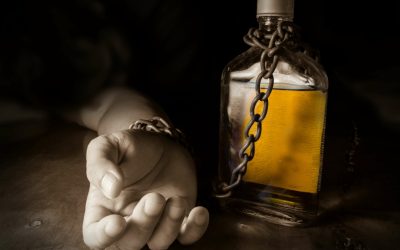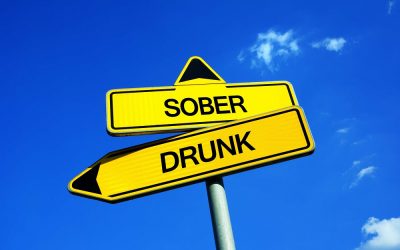Exploring the Depths of Physiological Dependence
Moreover, it’s vital to understand that psychological dependence doesn’t always involve physical dependence. For instance, marijuana is considered psychologically addictive rather alcoholism treatment than physically addictive. Understanding how substances affect mental and emotional states is crucial for diagnosis and treatment 2. Managing withdrawal symptoms is a critical part of overcoming physical dependence. This process, often referred to as detoxification or detox, should always be performed under the supervision of healthcare professionals.
- It involves the removal of the substance from the body and addressing withdrawal symptoms.
- Physiological addiction, also known as physical dependence, is a complex condition that goes far beyond mere habit or choice.
- Substance use disorder therapy is a fundamental component of aftercare for individuals recovering from physiological dependence.
- It can significantly impact an individual’s behavior, thoughts, and emotions.
- The latter reflect physical dependence during which the body adapts to the drug of choice, requiring more and more of it to achieve a certain effect.
Why Some Drugs Are Harder To Quit Than Others
As we wrap up our exploration of physical addiction, it’s crucial to remember that recovery is possible. The journey may be challenging, but with the right support, treatment, and determination, individuals can overcome physical addiction and reclaim their lives. Medications play a crucial role in the treatment of addictions, particularly to opioids, alcohol, and nicotine. They are often combined with behavioral therapy or counseling for optimal results.
What is psychological dependence?
By combining detoxification, medication-assisted treatment, and behavioral therapies, individuals can receive comprehensive care for their physiological dependence. The specific treatment approach may vary depending on the substance involved, the severity of the dependence, and individual needs. It is essential for individuals seeking treatment to consult with healthcare professionals or addiction specialists to determine the most appropriate treatment plan for their specific situation. Behavioral therapies play a crucial role in the treatment of physiological dependence. These therapies help individuals identify and change unhealthy thoughts and behaviors related to substance use.
Using technology to support outpatient addiction treatment

As we stated earlier, we’re an outpatient Suboxone clinic that is dedicated to help as many patients as we can to overcome their addiction and begin to live life at its fullest once again. Work performance may suffer, personal hygiene might be neglected, and relationships may become strained or broken. They might prioritize obtaining and using the substance over everything else, even at the cost of relationships and personal well-being. Discover the hidden dangers of Alcoholics Anonymous (AA) and explore alternatives for effective recovery.
These indicators may suggest the presence of dependence, necessitating intervention. Screening tools like the CAGE questionnaire or the Alcohol Use Disorders Identification Test (AUDIT) can provide initial insights. These brief assessments ask about substance use patterns and related problems. Expert strategies to address substance use and spring break concerns with your college kid.
When you reduce or stop using the substance, you experience withdrawal symptoms, throwing off your balance. Over time, the body becomes accustomed to the effects of a substance, requiring higher doses to achieve the same desired effects. This can lead to increased drug consumption and, in turn, increase the risk of overdose. With continued drug use, the body may develop tolerance, where it becomes accustomed to the effects of the drug. This means that higher doses of the drug are required to achieve the same effects initially experienced. Tolerance can lead to increased drug consumption and, in some cases, the risk of overdose.
- Recognize early signs of alcohol dependency, from physical symptoms to behavioral changes, and seek professional help to regain control and improve relationships.
- While your body has adjusted to the absence of the drug’s chemicals, your mind has also adapted and needs to address the psychological aspects of addiction.
- In some cases, dual diagnosis treatment may be necessary for individuals who have co-occurring mental health disorders alongside their addiction.
- If you are taking a prescription medication, your doctor may change the class of medication, which may affect your body in a different way.
- The quick onset and short duration of its effects lead to frequent use and rapid addiction.

By addressing both the physical and psychological aspects of addiction, rehab provides the necessary support and resources for successful physiological dependence recovery. Understanding the behavioral, emotional, and social impacts of psychological dependency is crucial in recognizing and addressing the complexities of substance use disorder. Treatment approaches that focus on therapy and creating new patterns of thought and behavior have shown effectiveness in managing psychological dependence. By addressing the underlying psychological factors and providing necessary support, individuals can work towards recovery and rebuilding their lives.
How to Quit Meth for Good: Strategies & Recovery Resources
They may develop a strong craving for the substance and believe they need it to manage stress, anxiety, or for social interaction. Promoting healthy coping mechanisms is essential in preventing and supporting individuals with physiological dependence. Encouraging the development of alternative strategies to manage stress, emotions, and triggers can help reduce the reliance on substances as a coping mechanism. Healthy coping mechanisms may include engaging in physical activities, practicing mindfulness and relaxation techniques, seeking support from friends and family, or participating in hobbies and creative outlets.
